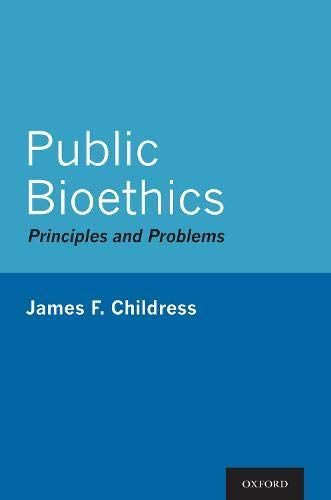
Public Bioethics Principles and Problems
""Public Bioethics collects the most influential essays and articles of James F. Childress, a leading figure in the field of contemporary bioethics. These essays, including new, previously unpublished material, cohere around the idea of "public bioethics," which involves analyzing and assessing public policies in biomedicine, health care, and public health, often through public deliberative bodies. The volume is divided into four sections. The first concentrates on the principle of respect for autonomy and paternalistic policies and practices. The second explores the tension among bioethics, public policy, and religious convictions. It pays particular attention to the role of religious convictions in the formation of public policies and to the basis and limits of exemptions of health care providers who conscientiously oppose providing certain legal and patient-sought services. The third section looks at practices and policies related to organ transplantation. Childress focuses particularly on determining death, obtaining first-person consent for deceased organ donation, and allocating donated organs effectively and fairly. The book's fourth and final section maps the broad terrain of public health ethics, proposes a triage framework for the use of resources in public health crises, addresses public health interventions that potentially infringe civil liberties, and sheds light on John Stuart Mill's misunderstood legacy for public health ethics."--Provided by publisher.